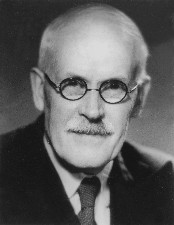A Quote by William Whewell
Our assent to the hypothesis implies that it is held to be true of all particular instances. That these cases belong to past or to future times, that they have or have not already occurred, makes no difference in the applicability of the rule to them. Because the rule prevails, it includes all cases.
Related Quotes
The hypotheses which we accept ought to explain phenomena which we have observed. But they ought to do more than this; our hypotheses ought to foretell phenomena which have not yet been observed; ... because if the rule prevails, it includes all cases; and will determine them all, if we can only calculate its real consequences. Hence it will predict the results of new combinations, as well as explain the appearances which have occurred in old ones. And that it does this with certainty and correctness, is one mode in which the hypothesis is to be verified as right and useful.
Pedantry and mastery are opposite attitudes toward rules. To apply a rule to the letter, rigidly, unquestioningly, in cases where it fits and in cases where it does not fit, is pedantry. [...] To apply a rule with natural ease, with judgment, noticing the cases where it fits, and without ever letting the words of the rule obscure the purpose of the action or the opportunities of the situation, is mastery.
There are cases where examinations are admitted, namely, before the coroner, and before magistrates in cases of felony. That appears to me to go rather in support of the general rule than in destruction of it. Every exception that can be accounted for is so much a confirmation of the rule that it has become a maxim, Exceptio probat regulam.
After all, the practical reason why, when the power is once in the hands of the people, a majority are permitted, and for a long period continue, to rule is not because they are most likely to be in the right, nor because this seems fairest to the minority, but because they are physically the strongest. But a government in which the majority rule in all cases cannot be based on justice, even as far as men understand it.
Rule One. You must know the difference between an asset and a liability, and buy assets. If you want to be rich, this is all you need to know. It is Rule No. 1. It is the only rule. This may sound absurdly simple, but most people have no idea how profound this rule is. Most people struggle financially because they do not know the difference between an asset and a liability.
10 Rules for Being Human: Rule #1 - You will receive a body. Rule #2 - You will be presented with lessons. Rule #3 - There are no mistakes, only lessons. Rule #4 - The lesson is repeated until learned. Rule #5 - Learning does not end. Rule #6 - "There" is no better than "here". Rule #7 - Others are only mirrors of you. Rule #8 - What you make of your life is up to you. Rule #9 - Your answers lie inside of you. Rule #10 - You will forget all this at birth.








































